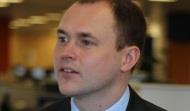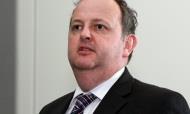Providers must work together to drive the changes recommended in Sir David Dalton’s report on the options and opportunities for providers of NHS care, argue David Hare and Jim Easton
Ever since its inception, the NHS’s founding principles of meeting the needs of everyone, free at the point of delivery, based on clinical need and not ability to pay, have ensured that the service has been a triumph of post-war Britain.

‘Independent sector providers can and do make a valid contribution to new organisational models’
However, as healthcare professionals and the public are becoming ever more aware, the NHS has reached a critical point in its history, facing rising demand and unprecedented financial strain. A National Audit Office report into the financial sustainability of NHS bodies last month said that the combined gross deficit for NHS trusts and foundation trusts increased from £297.2m in 2012-13 to £743.3m in 2013-14.
With this in mind, Sir David Dalton’s excellent report into new models for providers of NHS care couldn’t have come at a more critical time. As Sir David makes clear, we must now look at innovative new ways of doing things and be radical in considering new organisational forms for delivering NHS care. To do this successfully it is vital that we draw on the strengths of all providers and, as the report states, use more widely the potential for partnerships between all providers no matter what their ownership model.
Experience to share
The NHS provider sector has been made up of a rich mix of publicly owned, independent, voluntary and social enterprise organisations for many years, all of which share the same commitment to NHS values and to playing their part in serving patients. Partnerships between different types of providers have long existed; however, it is now more important than ever that all providers work together to drive innovative changes in care provision and to draw on each other’s strengths and experiences.

‘Enabling these kind of changes at pace and scale is going to be one of the defining challenges for the NHS over the coming years’
As with all types of provider, independent sector providers can and do make a valid contribution to new organisational models. The sector has decades of experience in working with public sector providers, while it also has experience in implementing changes swiftly across organisations and a sound knowledge of different corporate and clinical models, all of which it could share with other providers. The independent sector is also a valuable source of capital able to invest in new services, technology and to update and modernise facilities.
As Sir David points out, there is no one size fits all solution and providers need to drive new organisational forms that will provide the most appropriate care for their local populations. This will require regulators to give providers space to consider all of the options that Sir David sets out, but also to offer support and guidance where needed to help organisations make the transition and to ensure that patients are receiving the best possible service.
More on the Dalton review
The independent sector has a great deal to offer to partners within the NHS to assist with this. Hospital groups have decades of experience managing multisite group structures and ensuring high standards of clinical governance and patient experience.
There is evidence that the independent sector can successfully take on management contracts under franchising arrangements and many providers are already partnering with the independent sector to run diagnostics facilities, operate surgical specialties or manage clinical homecare partnerships to enable more care to be carried out in people’s own homes.
Enabling these kind of changes to happen at pace and scale is going to be one of the defining challenges for the NHS over the coming years.
“There are no right or wrong organisational forms – what matters is what works.” This crucially important statement from Sir David’s foreword must now shape how the NHS responds to his report and guide all providers of NHS care as they consider what will enable them to continue to deliver on the principles of the service while adapting to the needs of patients in the 21st century.
David Hare is chief executive of the NHS Partners Network and Jim Easton is managing director – healthcare at Care UK


























No comments yet